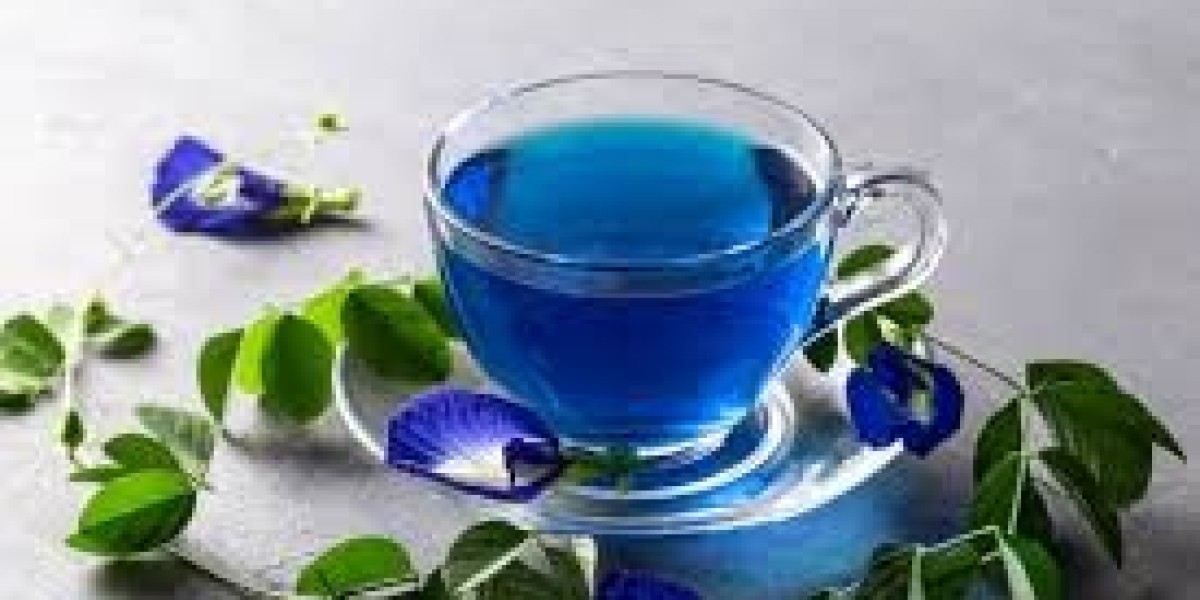Herbal tea has long been revered for its delightful flavors, aromatic properties, and potential health benefits. Unlike traditional teas derived from the Camellia sinensis plant, herbal teas, also known as tisanes or infusions, are crafted from a diverse array of dried herbs, fruits, flowers, and spices. This rich variety of ingredients allows herbal teas to offer a wide range of flavors, each with unique medicinal properties that cater to different tastes and wellness preferences. In this article, we will explore the fascinating world of herbal tea, its types, and the potential health benefits associated with regular consumption.
What is Herbal Tea?
Herbal tea is a warm or cold beverage made by steeping various plant-based ingredients in hot water. The term "tea" in herbal tea is a misnomer since true tea comes from the Camellia sinensis plant, while herbal teas are botanical infusions. Nevertheless, the common usage of the term "herbal tea" has persisted due to its widespread familiarity and ease of communication.
The allure of herbal teas lies in their caffeine-free nature, making them suitable for individuals sensitive to caffeine or seeking an alternative to traditional teas. Additionally, herbal teas are known for their soothing and calming effects, making them ideal for relaxation and unwinding after a busy day.
Types of Herbal Tea
The world of herbal tea boasts an extensive array of flavors and medicinal properties, each unique to its ingredients. Let's explore some popular types of herbal teas and the benefits they offer:
Chamomile Tea (Matricaria chamomilla) Chamomile tea is perhaps one of the most well-known herbal teas, cherished for its mild, apple-like flavor and calming effects. It contains apigenin, an antioxidant that binds to certain receptors in the brain, reducing anxiety and promoting relaxation. Chamomile tea is often used as a natural remedy for sleep disturbances, stress reduction, and digestion support.
Peppermint Tea (Mentha x piperita) Peppermint tea is a refreshing and invigorating herbal infusion known for its cooling and soothing properties. The menthol in peppermint aids digestion by relaxing the muscles in the gastrointestinal tract, alleviating bloating, indigestion, and cramps. Additionally, peppermint tea is a caffeine-free alternative to stimulate the mind and enhance focus.
Ginger Tea (Zingiber officinale) Ginger tea is a zesty and warming herbal infusion renowned for its anti-inflammatory and digestive benefits. The active compounds in ginger help relieve nausea, ease stomach discomfort, and support overall gastrointestinal health. Ginger tea is also known to boost immunity and improve circulation.
Rooibos Tea (Aspalathus linearis) Rooibos tea, also known as red bush tea, hails from South Africa and boasts a naturally sweet flavor with a hint of nuttiness. Rich in antioxidants like aspalathin and quercetin, rooibos tea offers potential health benefits, including promoting heart health, supporting the immune system, and soothing skin irritations.
Hibiscus Tea (Hibiscus sabdariffa) Hibiscus tea stands out with its striking crimson color and tangy taste. Packed with anthocyanins and vitamin C, hibiscus tea is a potent antioxidant powerhouse. Regular consumption has been linked to reduced blood pressure, improved heart health, and potential anti-inflammatory effects.
Lavender Tea (Lavandula angustifolia) Lavender tea is celebrated for its calming and aromatic qualities, making it a popular choice for relaxation and stress relief. The soothing properties of lavender can aid in promoting better sleep quality and reducing anxiety.
Echinacea Tea (Echinacea purpurea) Echinacea tea is made from the purple coneflower plant and is revered for its potential immune-boosting properties. It is commonly consumed during the colder months to support the body's defenses against common colds and flu.
Lemon Balm Tea (Melissa officinalis) Lemon balm tea has a gentle lemony flavor and is cherished for its calming and mood-enhancing effects. It is often used to reduce stress, promote relaxation, and improve cognitive function.
Dandelion Root Tea (Taraxacum officinale) Dandelion root tea is a popular detoxifying herbal infusion known for its ability to support liver function and aid in digestion. It has a slightly bitter taste but offers potential benefits for cleansing the body and promoting healthy skin.
Health Benefits of Herbal Tea
Herbal teas are celebrated not only for their delightful flavors but also for their potential health-promoting properties. While individual responses may vary, regular consumption of herbal teas may offer the following benefits:
Digestive Support: Many herbal teas, such as chamomile, peppermint, and ginger tea, can aid in digestion, alleviate bloating, reduce indigestion, and ease stomach discomfort.
Stress Reduction and Relaxation: Herbal teas like chamomile, lavender, and lemon balm tea have natural calming properties that can help reduce stress and anxiety, promoting relaxation and improved sleep quality.
Immune System Boost: Herbal teas rich in antioxidants, such as hibiscus and echinacea tea, can help strengthen the immune system and protect the body from oxidative stress.
Anti-Inflammatory Effects: Certain herbal teas, including ginger and rooibos tea, possess anti-inflammatory properties that may assist in managing inflammation-related conditions.
Hydration: Herbal teas are an excellent way to stay hydrated, especially for those who prefer caffeine-free options.
Skin Health: Rooibos tea and dandelion root tea contain antioxidants that may contribute to healthier skin by reducing oxidative damage.
Conclusion
Herbal tea, also known as tisane or infusion, is a delightful and caffeine-free alternative to traditional teas. With a vast array of flavors and potential health benefits, herbal teas have been cherished for centuries as natural remedies and soothing beverages. From chamomile's calming effects to ginger's digestive support, each type of herbal tea offers unique qualities to cater to diverse tastes and well-being preferences. Embrace the world of herbal teas, and let their diverse flavors and potential health benefits become an enriching part of your daily routine. Remember, while herbal teas can complement a healthy lifestyle, it's essential to consult with a healthcare professional for personalized advice and guidance. Enjoy the comforting and nourishing experience that herbal teas provide, as you embark on a journey to a healthier and more balanced life.



